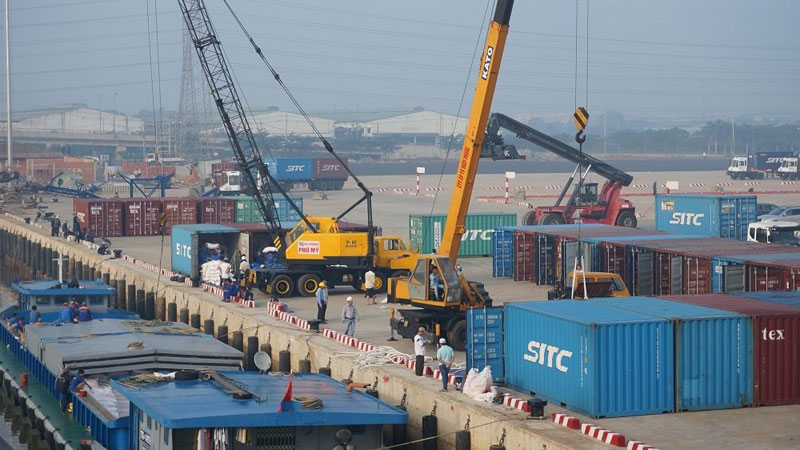



Enhancing the performance of the logistics sector is also aimed at enhancing the business environment in Vietnam. (Photo: Tan Cang Hiep Phuoc).
Specifically, in February 2017, the Prime Minister adopted an action plan on developing Vietnam’s logistics sector until 2025. In 2018, logistics development was included in Resolution 19 for the first time, with the specific goal of gradually reducing the costs of logistics to about 18% of GDP and improve Vietnam’s logistics performance index by ten positions. And in July 2018, the PM promulgated another directive for stepped-up measures to lower logistics costs and connect the transport infrastructure effectively.
In the age of globalisation, logistics is an important factor to the success of any country. Depending on its location and socio-economic characteristics, each country will choose its own management model and have different investment priorities in logistics development. It has been demonstrated that among the countries with the same income per capita, those with the best logistics performance will have a 1% increase in GDP and 2% in trade. Therefore logistics is a sector that many countries have made great efforts to develop.
According to a calculation of the Vietnam Logistics Business Association, Vietnam’s logistics sector is growing at a faster rate than GDP growth, at 16-20% and totalling US$20-22 billion a year. A recently released report by the World Bank shows that Vietnam ranks 39th among 160 countries in terms of logistics, its best performance ever. However, the cost of logistics in Vietnam remains twice as high as that of other developed economies, higher than the global average, and is becoming a bottleneck to the development of the sector and the whole economy in general.
High logistics costs are attributed to poor infrastructure, the small size of logistics firms, complicated administrative procedures, unqualified manpower and limited application of information technology.
Logistics is a composite service sector that comprises many relevant sectors such as transport, packaging, tax and customs procedures. With the above-mentioned development orientation, logistics can be considered a test in improving the business climate in Vietnam. Therefore, enhancing the performance of the logistics sector is also aimed at enhancing the business environment in Vietnam.